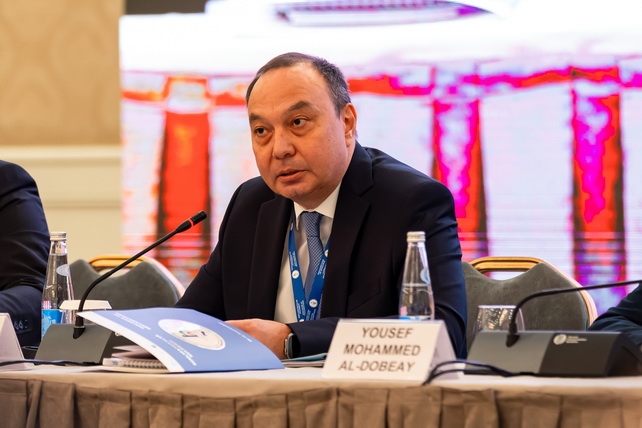Eldor Aripov: The “Dialogue of Declarations” Forum is a Unique Platform for Promoting Mutual Respect, Freedom of Conscience and a Culture of Tolerance

Delivering a welcome speech at the opening of the 2nd International Forum “Dialogue of Declarations” in Tashkent today, Eldor Aripov, Director of the Institute for Strategic and Interregional Studies under the President of Uzbekistan (ISRS), emphasized that at a time when interfaith tensions are escalating in many parts of the world, this forum is becoming a unique platform that unites people of different religious views in the name of fostering mutual respect, freedom of conscience, and a culture of tolerance.
He recalled that the current forum continues the initiative launched in 2022, which resulted in the Bukhara Declaration, later recognized as an official document of the UN General Assembly.
Speaking about the goals of the event, Aripov highlighted that the key objective of the Forum is to strengthen international cooperation in advancing the ideas of enlightenment and a culture of tolerance.
“It is symbolic that we call our Forum a ‘Dialogue.’ After all, declarations are born when words gain strength and intentions become a shared course of action. But the path to this always begins with a sincere conversation, from which initiatives, projects, and partnerships emerge,” he underlined.
Developing this idea further, Aripov noted that such approaches are largely in tune with the reforms being implemented in Uzbekistan today. In particular, within the framework of the “New Uzbekistan” development strategy proclaimed by President Shavkat Mirziyoyev, special attention is paid to the protection of human rights, including the guarantee of freedom of religion.
The ISRS Director stressed that this issue is regarded as a cornerstone of sustainable social development. In this regard, in recent years the country has carried out major reforms in the religious sphere. Specifically, in 2021 a new edition of the Law “On Freedom of Conscience and Religious Organizations” was adopted.
The registration procedures for religious organizations have been significantly simplified. In addition, the quotas for pilgrimage (Hajj) have been doubled, and three new higher Islamic educational institutions have been opened.
According to Aripov, Uzbekistan proceeds from the premise that guaranteeing freedom of conscience reduces the risk of radicalization and the emergence of conflicts on religious grounds. The state also views this as a key factor in strengthening trust between the authorities and society.
In conclusion, the ISRS Director expressed confidence that the dialogue within the framework of the forum would become an important step towards building an atmosphere of peace and harmony, and that the Forum’s final document would make a significant contribution to the promotion of universal values at the global level.
It should be recalled that the Forum is organized by the ISRS in cooperation with the American NGO “Love Your Neighbor Community” (LYNC), with the support of the Committee on Religious Affairs, the Center for Islamic Civilization in Uzbekistan, the Ministry of Foreign Affairs of Uzbekistan, and the Samarkand regional administration.
The event is attended by about 50 leading scholars of religion, theologians, experts, and high-level representatives from 15 countries, including the United States, the United Kingdom, China, Saudi Arabia, the United Arab Emirates, Indonesia, and the Central Asian states.







